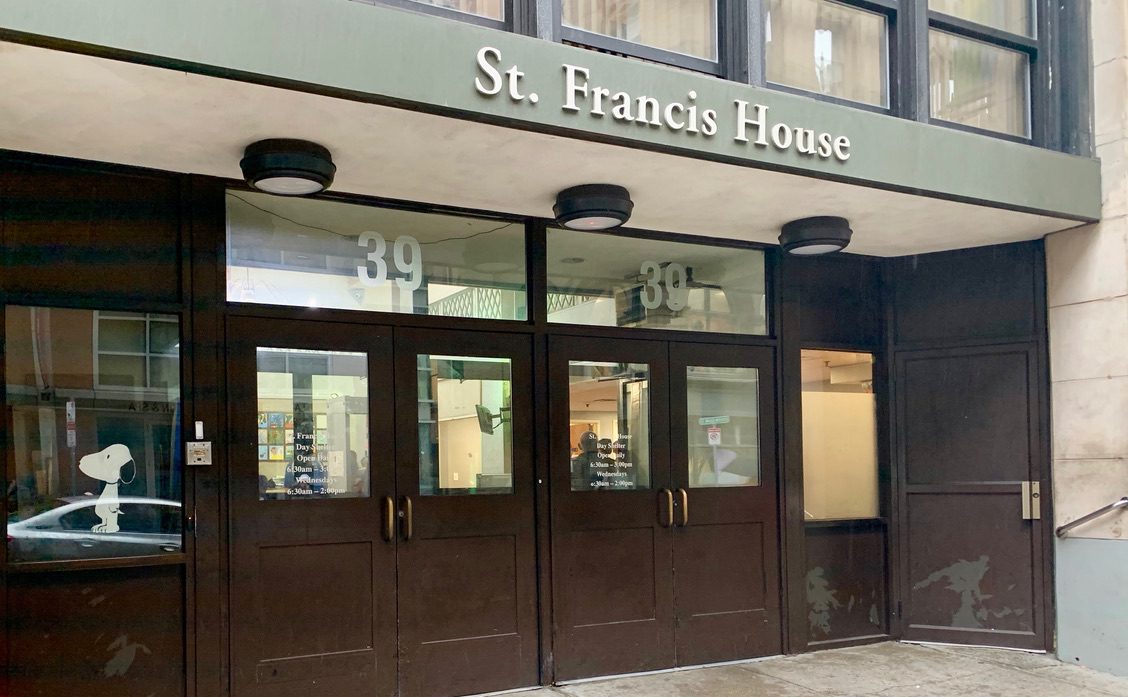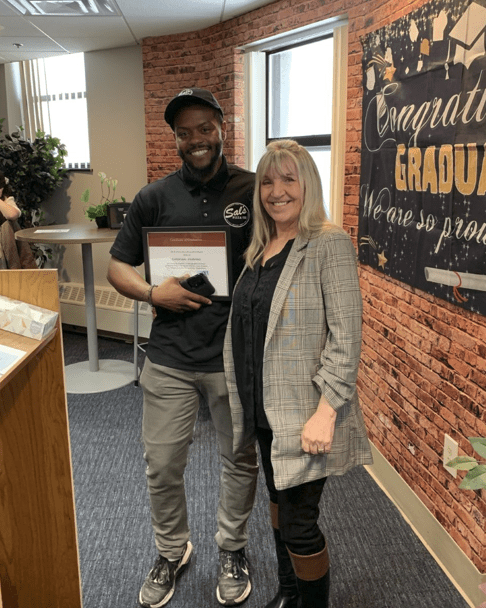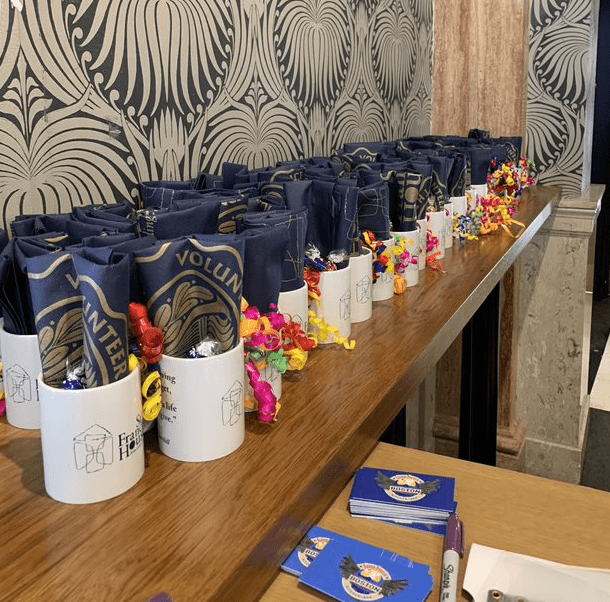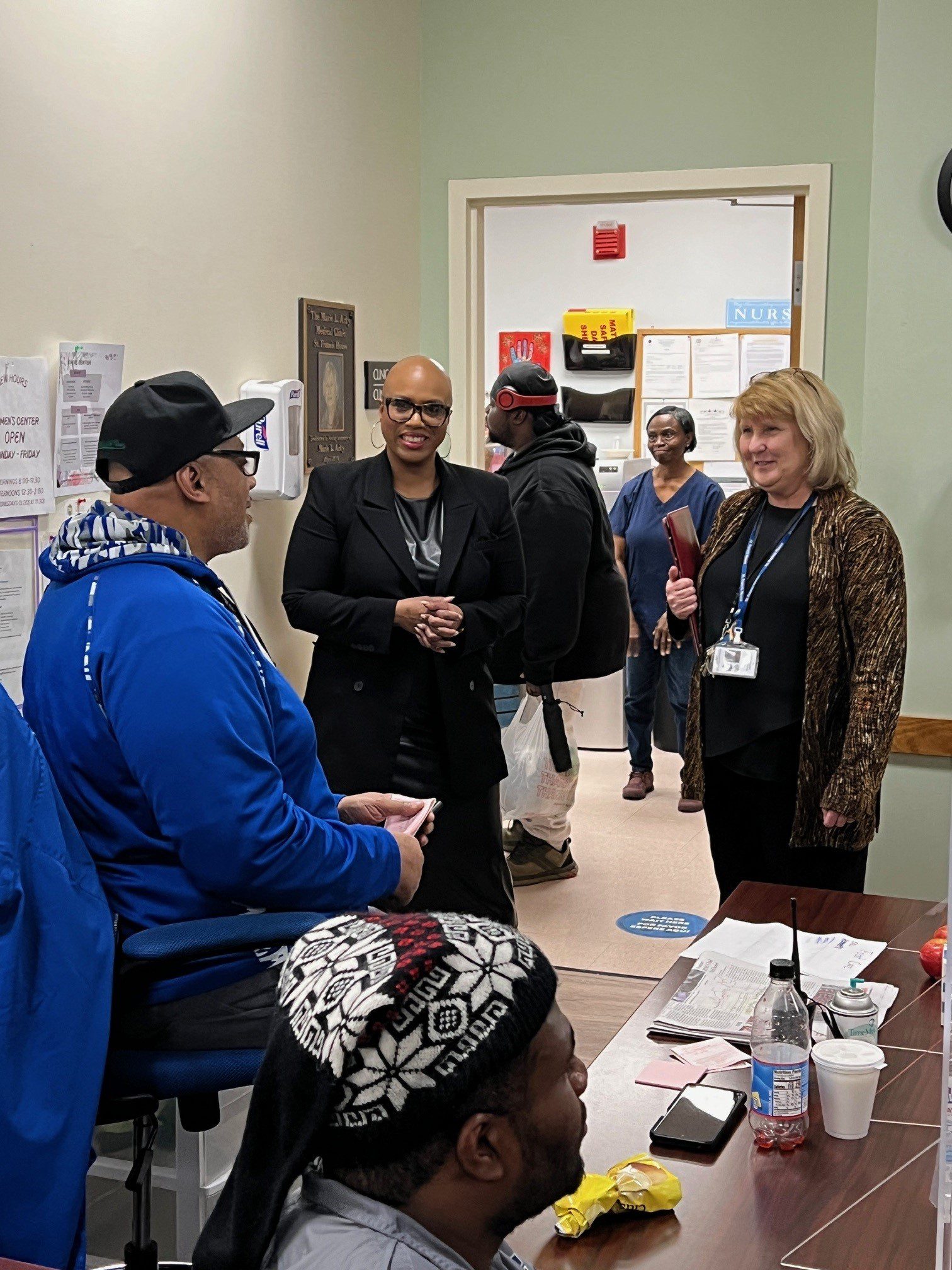In April 2022, St. Francis House and the Boston Public Health Commission launched the Recovery Route, which transports people experiencing homelessness in the Mass and Cass area to St. Francis House to receive services. As soon as this project was announced, Guest Engagement Liaison Betty Smith jumped at the opportunity to take on a leading role. Betty has taken on a variety of different responsibilities in her time at St. Francis House, but the Recovery Route has been her focus in recent months. Betty greets every van on the Recovery Route, making sure each new guest at St. Francis House feels welcomed and respected. Since April, Betty welcomed almost 250 new guests from Mass and Cass and introduced well over 100 people to additional services in other departments. Using empathy and drawing from lived experience with homelessness, Betty greets every new guest warmly and without judgement to build a trusting relationship with every person accessing our services.

How long have you been at St. Francis House and what do you do here?
I’ve been here for 1 year and 10 months and I’m a Guest Engagement Liaison, or G.E.L. I also oversee the Recovery Route. As G.E.L.’s we do registration for the new guests and we direct them to departments that may be of help to that particular individual, depending on the situation at hand.
The recovery route is very new, and it’s been going really well. People have gotten into detox and a young guy got a job [after being connected to our services by the route.] New guests are more open about coming to me and asking for clothing or food or anything they need to help them out throughout the day. I try to make sure they get the things they need.
There have also been times in this role that I’ve had a direct hand in saving the lives of guests who are in distress and need immediate medical attention. My work varies greatly from day to day.
What part of your job do you enjoy the most?
Meeting people, talking to them and letting them know that I am here for them. I probably don’t have all the answers, but I try to lead them to some of the answers they may be seeking.
Is there anything you wish people knew about your role or your department?
I think they should know that when it comes to the G.E.L. department, we are very strong oriented individuals who are here to help out the organization. We are the first point of contact when you come into the building, and we are the individuals that direct guests to the department that seems to be the best fit for their situation.
Why is that so important that guests have someone whose job it is to reach out and engage with them as soon as they come in?
A lot of our guest are experiencing homelessness and have been through a lot and don’t know what to do. Sometimes it’s good to start out a conversation just asking, “what’s your name, how are you doing?” Once you pass the “how are you doing” phase, it opens up the conversation to other things. That’s how you engage with them and that’s how you find out what they need, by trying to have an open and trusting conversation. It can be hard to trust people when you’re living that lifestyle. It’s good to know that when you come to St. Francis House, you’re going to meet individuals that are caring, very smart, and that are always going to be there to help you.
It’s not just trying to connect people with services, it’s also trying to connect with them to show they can trust you.
Right, be open yourself and they will often open up to you. I’d rather be an ear than a mouth. I’d rather listen than speak because that’s what people want you to do. They don’t want to hear what you have to say, they want you to listen to them, they want you to listen to what they’ve been through. That way you can get them directions and information about how to go about whatever it is they’ve been through. If you don’t know how to do it, G.E.L.’s can always contact someone who can help them out.
I worked at Pine Street too, so I know some of our guests from Pine Street, and I was homeless too.
How does that lived experience play into your work?
Being homeless when I was pregnant was pretty hard. I had to live with a whole bunch of different women and children and everyone is different. It helped be grow because, for one, there were a lot of different ethnicities and there was a lot of different things that you saw and things that you heard. Everybody is not the same. You might have similarities within what you’re going through, but everyone’s situation is different. I learned how to build and take in all the knowledge that was given to me and now I have the opportunity to share it.
I always tell people coming to St. Francis House that it’s ok because I was once homeless. I may not know what you’re going through personally, but I’ve at least partially been in your shoes.
They know you’re not going to be judgmental that way.
Right, I don’t like to be judgmental. If you’re a judgmental, biased individual, working with the homeless community is not for you.



